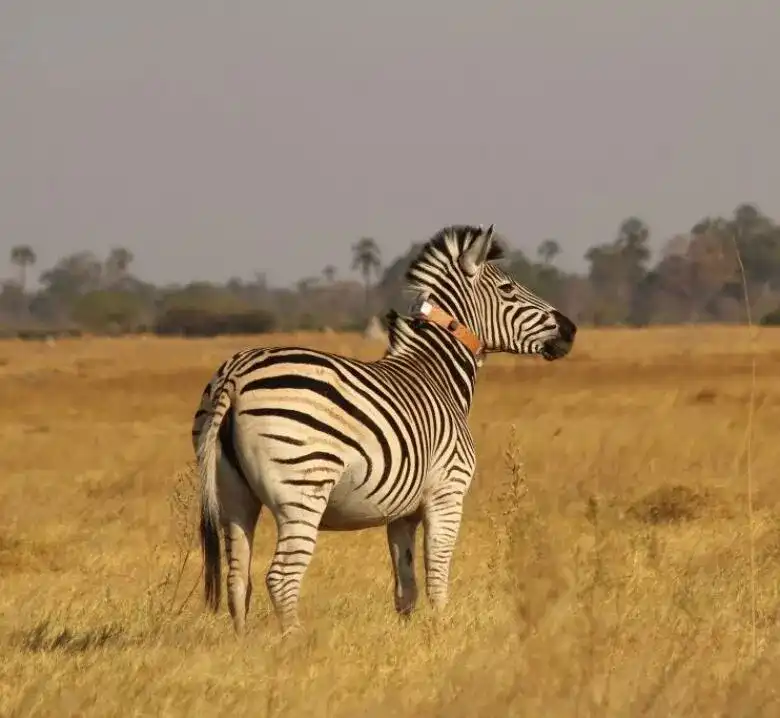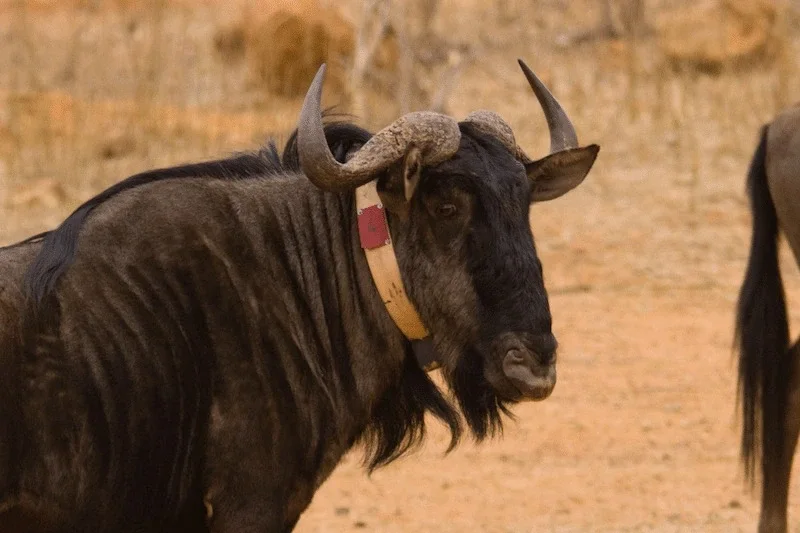Wildlife crime is one of the most profitable illegal industries worldwide. Current actions to reduce it are far from effective and fail to prevent population declines of many endangered species, pressing the need for innovative anti-poaching solutions. Wildlife trade is a low-risk, yet high-profit crime, ranking fourth in terms of revenue after trade in drugs, humans and arms. Sadly, poaching of wildlife continues to be a threat to the preservation of many wildlife species. As anti-poaching rangers often arrive too late at crime scenes, an effective method for early poacher detection and localization is thus urgently needed, so that preventive action can be taken. Scientists have therefore tested the concept of whether the behaviour of prey animals can be used to detect and localize human intrusions using wearable biologging sensors and predictive algorithms. The individuals fitted with these sensors are referred to as sentinels.

Abnormal Behaviour Betrays Poachers
Scientists at Wageningen University & Research have developed a high-tech early warning system for poaching. By equipping prey animals such as zebras, wildebeests and antelopes with sensors, suspicious changes in their movements are detected, using algorithms that recognize whether their behaviour is natural or may have been caused by poachers. This technology could represent a breakthrough in the fight against poaching.
Scientists analyzed human-evasive movement patterns of 135 mammalian savanna herbivores of four different species, using an internet-of-things architecture with wearable sensors, wireless data transmission and machine learning algorithms. They show that the presence of human intruders can be accurately detected (86.1% accuracy) and localized (less than 500 m error in 54.2% of the experimentally staged intrusions) by algorithmically identifying characteristic changes in sentinel movement. These behavioural signatures include, among others, an increase in movement speed, energy expenditure, body acceleration, directional persistence and herd coherence, and a decrease in suitability of selected habitat. The key to successful identification of these signatures lies in identifying systematic deviations from normal behaviour under similar conditions, such as season, time of day and habitat.
Simulating Poaching Behaviour
In Welgevonden Game Reserve in South Africa, De Knegt and his colleagues have fitted 135 prey animals (zebras, wildebeests, impala and eland antelopes) with GPS collars and sensors that wirelessly transmit data to a server in Europe. The combination of wireless biologging, predictive analytics and sentinel animal behaviour can benefit wildlife conservation via early poacher detection, but also solve challenges related to surveillance, safety and health. After fitting the equipment, the researchers simulated various disturbances like the intrusion of poachers on foot, in a car or both.

Abnormal Behaviour
The animals’ behaviour appeared to betray the presence of poachers. Animals in the vicinity of the poachers displayed abnormal movement patterns, such as flight behaviour or changes in the movements of the herd. This usually lasts for up to 45 minutes. This means that prey animals, which are generally not the targets of poachers themselves, can warn us of poachers moving in the area, therefore creating a real-time early warning system. Since these prey animals are often present in great numbers, we can quickly pickup any behavioural changes.
The study has demonstrated that sentinel animal behaviour can be used to detect poachers, since predictable signatures in behavioural responses to disturbance stimuli can be used to detect and locate human intrusions. The sentinels took systematic and detectable evasive action when experimental intruders came near.
Saving our Wildlife
The smart warning system can deliver substantial amounts of information to park rangers, for example, who can intervene before animals are harmed, however, this is not a long-term solution. Our system (and other protective measures) are necessary to get through this period of high poaching activity and the demand for rhino horn and the corruption that facilitates the smuggling must be reduced. The role of this EWS is not that of a fully automatic system to directly dispatch an anti-poaching unit, but to help wildlife reserves make informed decisions about managing their anti-poaching resources.
Using animal sentinels as a lens to the environment is not new, as they have long been employed to detect human exposure to biological and chemical hazards (e.g., canaries in coal mines), and more recently to detect the onset of natural disasters, epileptic seizures or outbursts of violence. However, this approach can expose illicit human activities, such as illegal fishing and poaching.
